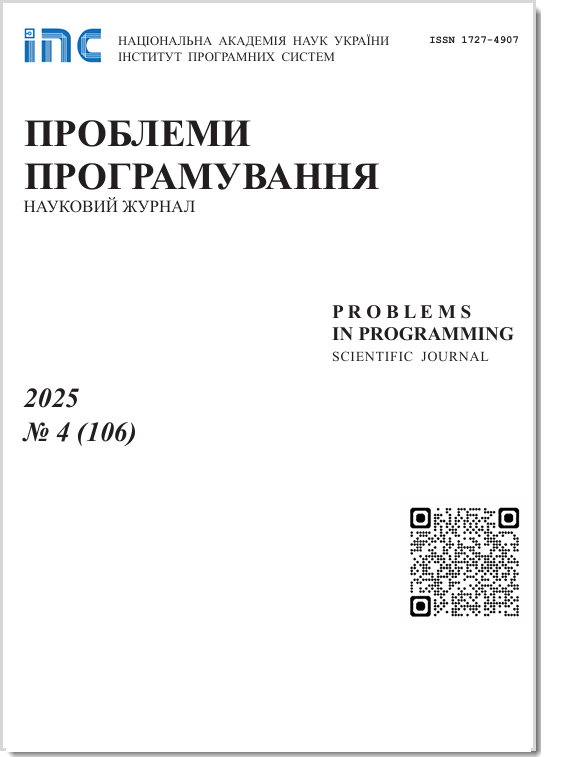Video-based visualization of debugging process
Abstract
One of the current trends in education is microlearning, which involves the use of short videos in the learning process. Microlearning has a number of advantages, including the fact that this approach is more student-centered, aims to increase the level of knowledge assimilation, requires less time for learning, and allows learning anytime and anywhere. In previous works, the authors have developed a constructive production model and corresponding software for tracking programmer's actions during the preparation of program text and debugging in the Visual Studio development environment. This article presents an extension of these software tools. Based on the collected information in the log files about the program debugging processes, their visualization is performed, which reproduces the sequence of actions during the original debugging process. The goal is to increase the efficiency and effectiveness of programming education. The video-based visualization demonstrates the programmer's work on preparing and correcting the code during debugging and is synchronized with the time stamps in the log files only during periods of activity. Comments are overlaid on the video, providing explanations and suggestions for improving the debugging process. Comments help to understand the rationale for specific actions taken during debugging and provide guidance on how to improve processes or use alternative approaches. The benefit of visualization for the teacher is the ability to: analyze the debugging process of a particular student, identify typical mistakes of a particular group of students, adjust the teaching process accordingly, and provide targeted assistance in improving debugging skills. Benefits for the student: the ability to analyze your own work, develop critical thinking on how to improve it, and receive timely assistance from the teacher.
Prombles in programming 2024; 2-3: 426-433
Keywords
Full Text:
PDFReferences
M. Perscheid, B. Siegmund, M. Taeumel, R. Hirschfeld, Studying the advancement in debugging practice of professional software developers, Software Quality Journal, 2017, pp. 83-110. CrossRef
T. Michaeli, R. Romeike, Improving debugging skills in the classroom: The effects of teaching a systematic debugging process, 14th Workshop in Primary and Secondary Computing Education, 2019, pp. 1-7. CrossRef
X. Gao, K. F. Hew, A Flipped Systematic Debugging Approach to Enhance Elementary Students' Program Debugging Performance and Optimize Cognitive Load, Journal of Educational Computing Research, 2023, pp. 1064-1095. CrossRef
R. Suzuki, G. Soares, A. Head, E. Glassman, R. Reis, M. Mongiovi, L. D'Antoni, B. Hartmann, TraceDiff: Debugging Unexpected Code Behavior Using Trace Divergences, 2017 IEEE Symposium on Visual Languages and Human-Centric Computing, 2017, pp. 107-115. CrossRef
V. Shynkarenko, O. Zhevago, Visualization of program development process, 2019 IEEE 14th International Conference on Computer Sciences and Information Technologies, 2019, pp. 142-145. CrossRef
J. Moons, C. De Backer, The design and pilot evaluation of an interactive learning environment for introductory programming influenced by cognitive load theory and constructivism, Computers & Education, 2013, pp. 368-384. CrossRef
J. Shi, K. Schneider, Creation of Humanfriendly Videos for ebugging Automated GUI-Tests, ICTSS 2021, 2022, pp. 141-147. CrossRef
V. C. Lee, Y. T. Yu, C. M. Tang, T. L. Wong, C. K. Poon, ViDA: A virtual debugging advisor for supporting learning in computer programming courses, Journal of Computer Assisted Learning, 2018, pp. 243-258. CrossRef
V. Shynkarenko, O. Zhevaho, Development of a toolkit for analyzing software debugging processes using the constructive approach, Eastern-European Journal of Enterprise Technologies, 2020, pp. 29-38. CrossRef
V. Shynkarenko, O. Zhevaho, Experimental studies of debugging processes of computer programs by students using Process Mining, Visnyk of Kherson National Technical University, 2021, pp. 83-98.
DOI: https://doi.org/10.15407/pp2024.02-03.426
Refbacks
- There are currently no refbacks.









